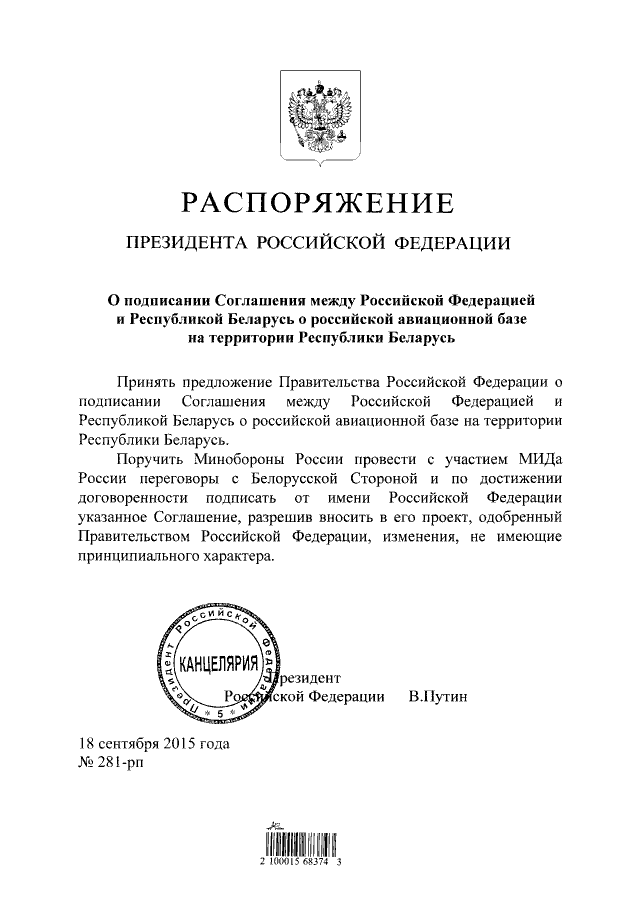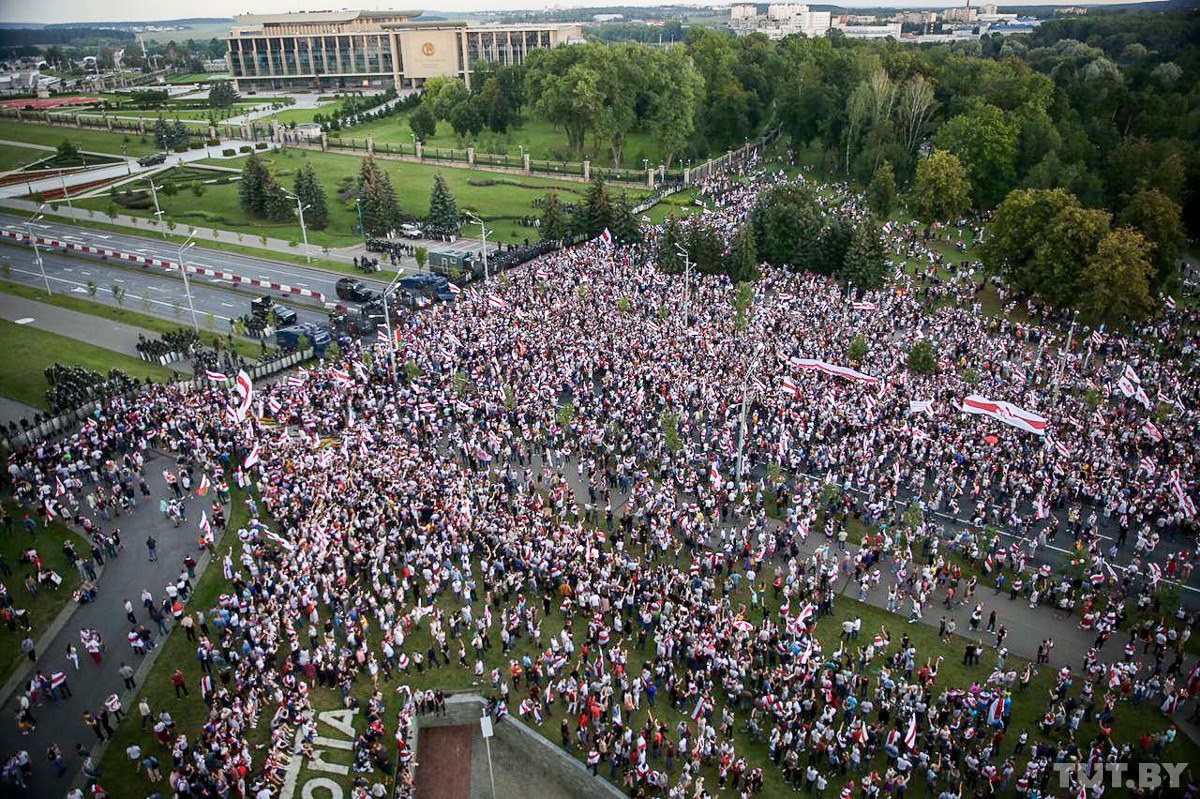The mass protests erupting in Belarus since the day of the presidential elections, 9 August 2020, have been marked by brutal repression and unprecedented police violence. Security forces have used tear gas, water cannons, and weapons against the protesters. Thousands of people have been detained, arrested, and abused, many of whom have been violently beaten and humiliated. The reported instances of police abuse have come as an unexpected shock, though no actions have so far been taken to investigate.
Beatings and humiliation of Belarusian protesters
Belarusian human rights activists have noted extensive evidence of cruelty and unreasonable use of physical force against detainees in police vans and temporary detention centers, as well as during their transportation to other places of detention. Many of those detained for participating in peaceful protests on August 9, 10, and 11 have been kept in inhumane conditions. Some have been tortured and beaten, most have been kept in overcrowded cells: 40-50 people in a cell designed for only 4-6 people, which has made it impossible to sleep at night, as well as to have enough air and space. Throughout their detention, almost no food or water has been provided.
The Human Rights Center Viasna has reported that more than 6,000 people have been detained and their whereabouts have been kept unknown for up to 10 days. At least 450 of the detainees were severely beaten, with many more humiliated and tortured by the police. Viasna, in partnership with the World Organization Against Torture, immediately organised for information pertaining to victims of ill-treatment to be collected, having received hundreds of testimonies confirmed by photos and videos. The majority of those subject to this abuse have been men under 35 years old, though women and a few elderly people have fallen victim to the abuse.
“Guys, (…) are you crazy? (…) What is the problem? I do not understand. For what? I didn’t throw anything” [baton blows are heard], asks the man who is being detained by riot police officers and thrown into the paddy wagon along with others.
“On the floor! Lay the f …k down. On the floor, quickly!” people in black shout.
“Me too?”
“Yes, face down!”
“Ok, ok.” (…)
“Hands on your head!”
“Guys, I was going home from work”, one of the detainees tries to explain.
“Lay the f…k down! Hands behind your head! [baton blows are heard] ‘I have f..king had it with you already”.
“I’m serious, I was going home from work, do you understand, from work,” the man almost cries.
“You b..ch, [new detainees are thrown into the paddy wagon] lay the f…k down. Hands behind the head”. [baton blows are heard]
“What are you doing?” [baton blows continue]
(…)”Lay the f…k down!” the people in black continue to shout.
“Why do you do this? I was driving from work”, the man cries.
“Shut the f..k up … “, [baton blows are heard, someone from the detainees gets a call, a ringtone is audible]. “Why the f..k are you crying, you f…king hero! I said silence, you f..ks …”, [something is transmitted over the radio, baton blows are heard]. “Take this you animal! Soon, we will come and shave you (…) What the f..k are you looking at!”, [sobs, baton blows are heard mixed with сursing]. “Is it uncomfortable laying down pr..k?”, [new detainees are thrown in the paddy wagon]. “Come the f..k in and lay the f..k down”.
“I am laying the f..k down…” someone answers calmly (…).
“We should all lay down, right?”
“Turn your f..king snout away! On the ground for f..k’s sake!!!” [baton blows are heard].
“F..k it hurts. Take him off, my leg is broken”. At this moment new detainees are put on top of each other in the paddy wagon and, apparently, the rest are thrown on top of the injured detainee (…).
“Tell them that there is no space here, there is a lot of [cursing]”.
“We are all good, the wagon is full (…) Turn the f..k downwards. Hands behind your back. If I see …” then the video stops.
Denis told that he was beaten three times: during his arrest, in the paddy wagon and when he was taken to the detention center, where as he says, people “just howled” from the beatings. He spent three days at Akrescina and was sentenced to 12 days.
Many of those released from detention have shared their stories with the media, bringing to light horrifying details of their experience in detention centres and police vans. In some cases, security forces have been forcing protesters to lie on top of each other, continuously beating the top “layer” of detainees until they bleed. Many have reported being forced to sit with their head touching the ground, beaten whenever they tried to change their body position. Some police officers have forced detainees to crawl on their knees in the prison yard, or have been beating them in turn with sticks and humiliating them with insults.
They have repeatedly asked protesters questions such as: “Will you go to the protest again?” or “Who paid you?”, as well as calling them “fascists”, and promising to “teach them how to vote”. This may indicate that special forces have gone through special ideological training in order to enhance their aggression towards the peaceful demonstrators.
Belarusian torture houses
Some of the detention centres have been described as “houses of torture”. In particular, Minsk’s Akrestina prison, where many of the protesters have been brought, has become a symbol of police brutality in Belarus. Hundreds of Akrestina detainees have been released with bruises and severe injuries, relating stories of humiliation, beatings, and torture by the security forces. One of the protesters, DJ Vladislav Sokolovsky, who was held for 10 days for playing the song “Change!” at a pro-government rally in Minsk, claimed to have been beaten in Akrestina by the Deputy Minister of Internal Affairs, Alexander Barsukov. Terrifying screams from behind the fence have been recorded by those lining up outside Akrestina to search for their missing relatives.
Moreover, at Oktyabrsky district police station, neighbouring residents have posted videos of the police yard, showing severe beating of people lying on top of each other with their hands behind their backs. Other videos show how security forces have taken the detainees out of the building, forced them onto their knees and beaten them with truncheons.
Torture of detainees in Minsk
The majority of the detainees have been so paralysed by fear that they have not dared to express their outrage, fearing collective punishment. Many, terrified by their experience in the detention centres, have refused to talk to journalists. A lot of arrested people have been transported by ambulance from the detention centres directly to the hospitals, with injuries ranging from fractures and internal bleeding to haemorrhage and ruptured organs. In Gomel, a young man died during his detention.
Condemnation and human rights action
Human right activists believe that these acts of torture and ill-treatment have been systemic, and that police were prepared in advance for such brutal action. More than 600 citizens of Belarus have filed applications to the Investigative Committee because of bodily harm inflicted by the police, and a hundred have filed complaints about beatings in temporary detention centres. Despite numerous and consistent reports of crimes committed by police, the Investigative Committees have neither initiated any criminal proceedings nor detained any of the persons directly involved in the organisation and commission of crimes against peaceful protesters and casual passers-by.
The Human Right Centre Viasna together with the Belarusian Helsinki Committee, the World Organization Against Torture and the International Federation for Human Rights have appealed to the UN Special Rapporteur on Torture calling for it to intervene regarding the beating and torture of peaceful demonstrators in Belarus.
Within Belarus, as well as in neighbouring countries, celebrities, politicians, journalists, workers of state enterprises and other organisations have publicly condemned the police violence against protesters, calling for security and military forces to stop abusing their power. For instance, at the state-funded National Belarusian Yanka Kupala Theater, actors and directors have collectively tendered their resignation after the theatre director Pavel Latushka was fired for supporting the protesters. Meanwhile, EU leaders have been reluctant to intervene apart from imposing sanctions on certain officials responsible for election-rigging and brutality.
Clearly, the purpose of such a harsh crackdown on peaceful protests has been to seed terror and instil fear in the local population, quelling any desire to come out onto the streets. However, on the contrary, violence has made the state appear as a common enemy, uniting Belarusians and motivating apolitical citizens to stand up against the abuse of power. Doctors, factory workers and artists have begun public protests, whereas a few state TV, government and police employees have left their jobs, feeling morally unable to serve the state. Hence, state-led violence has led only to additional and greater protests, which are now occurring on a daily basis across Belarus.

Alena Mikhalkovich is an intern at the Ostrogorski Centre. She is currently pursuing a BA degree at New York University Abu Dhabi, specialising in Middle Eastern Studies.
Belarus Digest is raising funds to continue working; you can support them here.
Read more:
- The world’s first Telegram revolution: how social media fuel protests in Belarus
- From ambassadors to sports heroes – Belarusian protests encompass all social groups
- How Alyaksandr Lukashenka stole the Belarus presidential election
- Wagner in Belarus: Ukrainian journalists cry treason as high officials suspected of blowing MID special op
- 50 women in a cell for four: Belarusian election observer tells of being jailed








